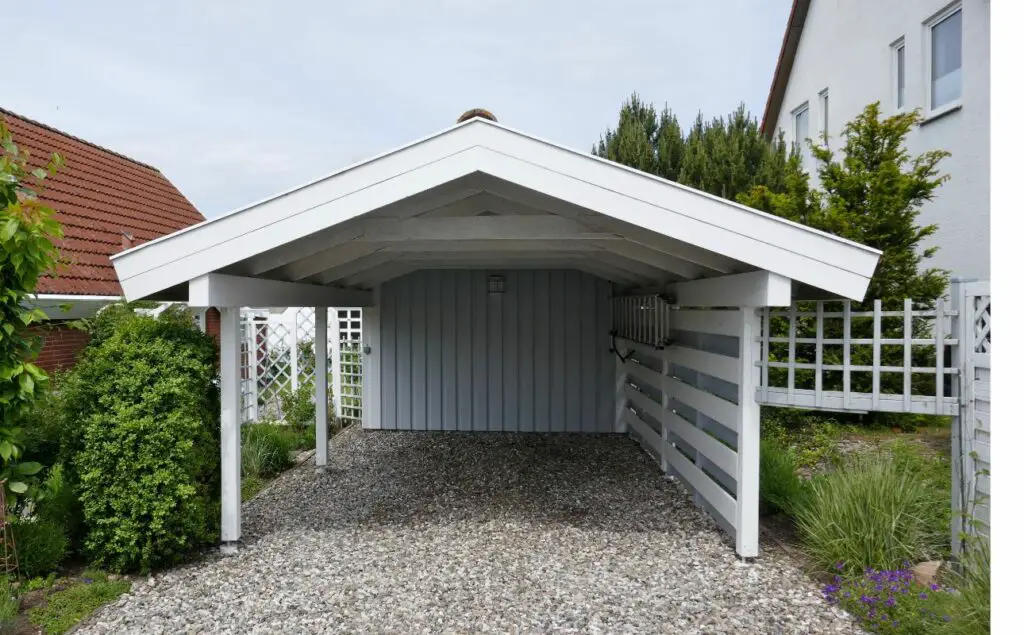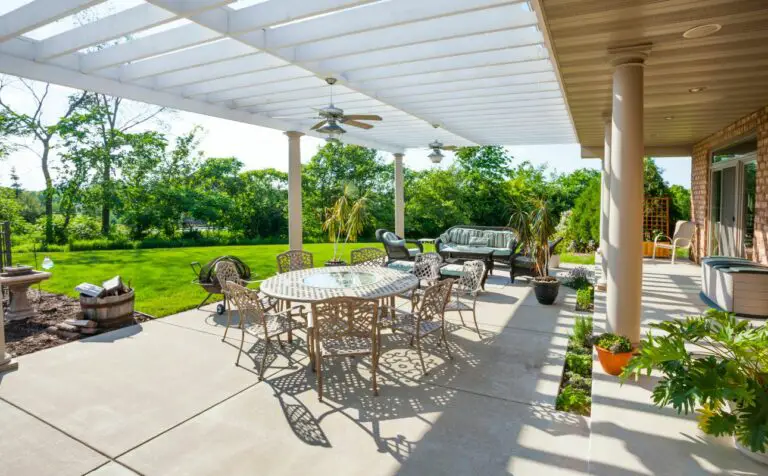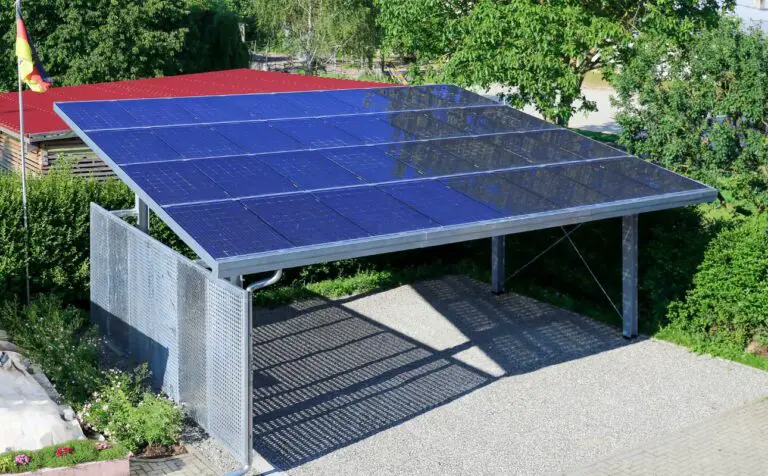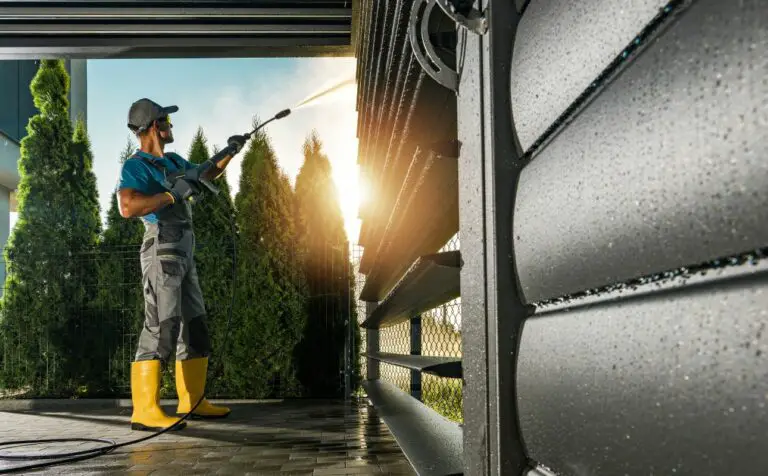Building a freestanding carport is an excellent way to protect your vehicle from the elements and add value to your property. However, before you start construction, it’s essential to understand whether or not you need a permit for your project.
Permit requirements vary depending on location and the type of structure being built, so it’s crucial to do your research before beginning any work. In this article, we will explore everything you need to know about obtaining a permit for a freestanding carport.
We’ll discuss local regulations, size, and type considerations, other factors that may require a permit, the consequences of building without one, and steps you can take to ensure compliance with all necessary regulations.
By the end of this article, you’ll have the knowledge needed to confidently begin planning and constructing your freestanding carport while adhering to all relevant laws and regulations.

About Local Regulations
Familiarizing oneself with the local regulations surrounding the construction of additional structures on a property is essential to ensure compliance with legal requirements.
Before beginning any construction, it is important to research the specific guidelines and codes set by your city or county. This research process may involve contacting local government agencies or reviewing online resources.
It is important to note that some municipalities may offer permit exemptions for certain types of structures, such as small carports. However, it is crucial to confirm these exemptions before proceeding with any construction.
Once familiar with local regulations and permit requirements, the next step is to determine the size and type of carport that will best suit your needs and comply with legal standards.
Determine the Size and Type of Carport
Selecting the suitable size and style of shelter for your vehicle is paramount in ensuring its safekeeping.
When determining the size and type of carport, it is important to consider design considerations such as location, orientation, and weather patterns.
A cost analysis should also be conducted to determine the most cost-effective option for your budget. Additionally, you may want to consider whether you need extra features such as side walls or storage space.
While choosing a suitable carport design is important, it is equally crucial to ensure that you comply with local regulations when building one. This includes obtaining any necessary permits or approvals before construction begins.
Consider Other Factors That May Require a Permit
Building codes and zoning laws are designed to promote safety, protect property values, and maintain community aesthetics. Therefore, it is crucial to consider other factors that may require a permit before installing a freestanding carport.
These factors include the location of the carport on the property, its size, and whether any additional electrical or plumbing work will be required.
Failure to obtain necessary permits can result in fines or even legal action against you. It is essential to research all applicable codes and regulations in your area and follow them carefully before beginning construction on your carport project.
Consequences of Building Without a Permit
Building a structure without obtaining the necessary regulatory approval can result in severe consequences, as according to the National Association of Home Builders, unpermitted construction can result in fines up to $10,000 or more.
Legal repercussions may include being required to tear down the structure at your own expense and difficulty selling the property in the future.
Steps to Ensure Compliance
Ensuring compliance with all applicable regulations is crucial for avoiding severe consequences and legal repercussions when constructing any type of structure.
This includes obtaining the necessary permits for building a freestanding carport, which may vary depending on local building codes and zoning laws.
To ensure compliance, it is important to research and understands the specific requirements in your area, as well as to obtain cost estimation and professional advice from experienced contractors or architects.
Failing to do so can result in costly fines or even demolition of the structure. It is always better to take the time to properly plan and obtain the necessary permits before beginning construction to avoid any potential legal issues down the line.
Can I Build a Carport on a Property with an Existing Structure?
If you have an existing structure on your property and are considering adding a carport, it’s important to understand the regulations and considerations involved. Building a carport on a property with an existing structure is generally possible, but there are factors to consider:
- Zoning and Building Codes
Check the zoning regulations and building codes in your area. These regulations dictate what can be built on a property, including setbacks, height restrictions, and other requirements. Ensure that your proposed carport complies with these regulations.
- Space Availability
Evaluate the available space on your property for the carport. Consider factors such as the size and layout of the existing structure, property boundaries, and any easements or restrictions that may affect the placement and size of the carport.
- Structural Considerations
Assess the structural implications of adding a carport to your property. Determine if the existing structure can support the additional load, especially if you plan to attach the carport to an existing building. Consult a structural engineer if necessary to ensure the safety and stability of the combined structures.
- Permits and Approvals
In most cases, building permits will be required for constructing a carport. You will need to submit plans, specifications, and other necessary documentation to the local building department for approval. The permitting process ensures that the carport meets safety and building standards.
- Professional Assistance
Consider seeking professional assistance from an architect or contractor who has experience with carport construction. They can help you navigate the permitting process, assess the structural feasibility, and ensure that the carport integrates seamlessly with the existing structure.
The Bottom Line
Building a freestanding carport requires careful consideration of local regulations, the size and type of carport, and other factors that may require a permit. Failure to obtain the necessary permits can result in consequences such as hefty fines or even having to remove the structure altogether. It is important to take the necessary steps to ensure compliance with local laws and regulations.
Just like constructing a puzzle, building a freestanding carport requires precise planning and execution. Each piece must fit together perfectly in order for the final product to be successful. Obtaining permits for a carport is crucial for ensuring that all legal requirements are met.
FAQ
Are there any height restrictions for a freestanding carport?
Height restrictions for freestanding carports can vary depending on local zoning regulations and building codes. It is important to consult the specific regulations in your area to determine any height limitations that may apply to your carport construction.
Do I need a permit for a temporary carport?
The need for a permit for a temporary carport depends on local building codes and regulations. In some areas, temporary carports may be exempt from permitting requirements. However, it is important to check with your local building department to determine the specific permit requirements for temporary carports in your area.
Is there a difference in permit requirements for a metal versus a wooden carport?
The permit requirements for a metal versus a wooden carport can vary depending on local building codes and regulations. However, in many cases, the material used for the carport (metal or wood) does not significantly impact the permit requirements. It is best to consult with your local building department to determine the specific permit requirements for both types of carports in your area.





